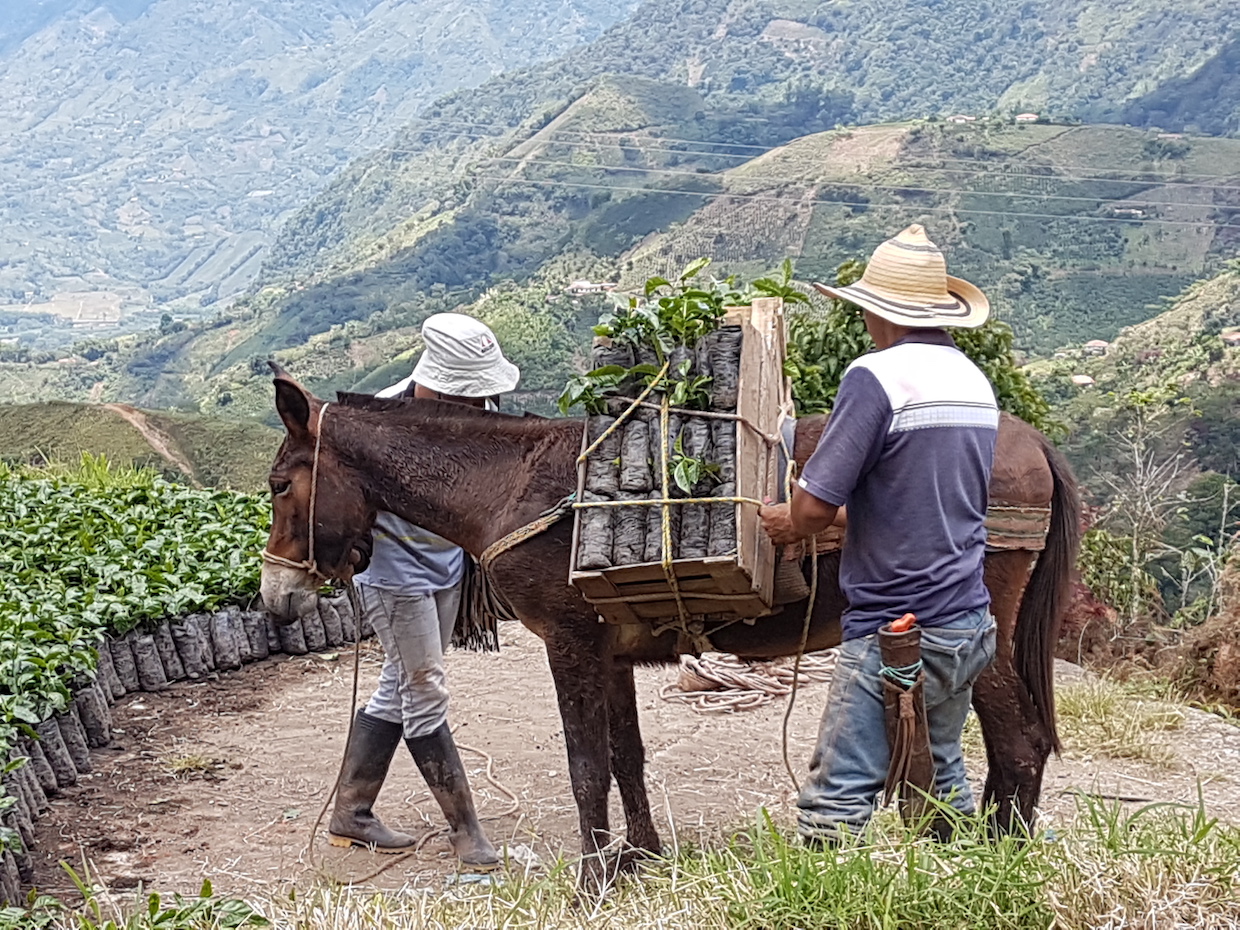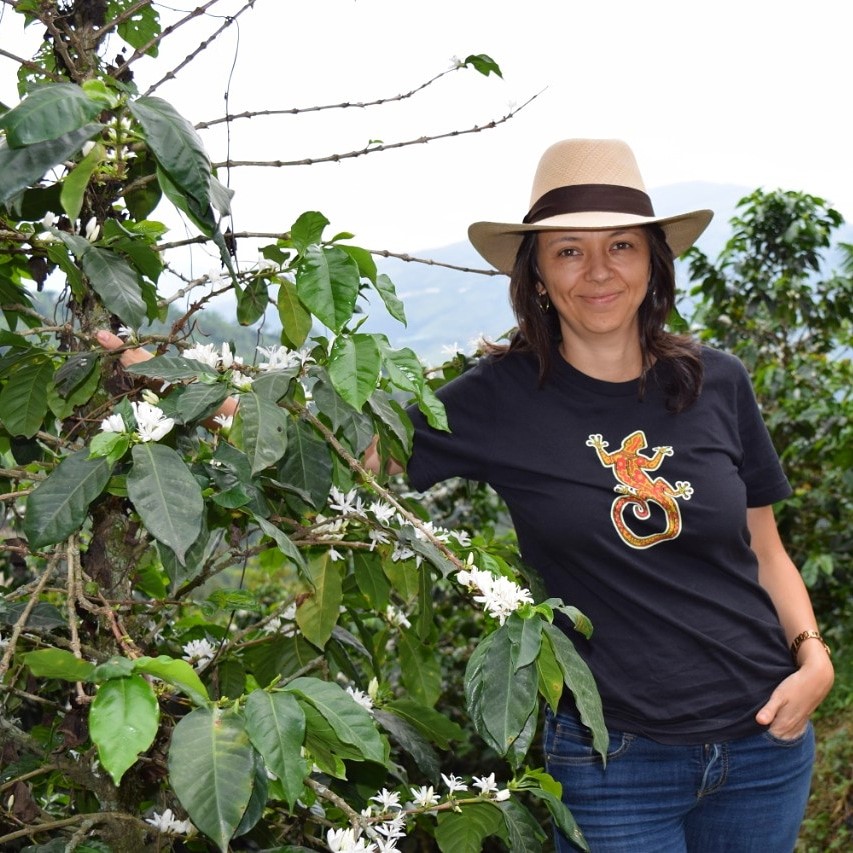
Workers transporting coffee seedlings in Colombia’s Caldas Department. All images courtesy of RGC Americas.
As the seed-to-cup narrative typically begins with coffee farmers, it thereby leaves out a critical group of people who make coffee production possible: farmworkers.
Farmworkers remain the most vulnerable actors within the coffee supply stream, yet without them coffee would not exist commercially, according to Angela Pelaez, sustainability manager for Bogotá, Colombia-based RGC Americas, a subsidiary of the Quebec-based green coffee trading company RGC Coffee.
“Normally in coffee all the projects and services are directed to farmers,” Pelaez recently told Daily Coffee News. “Everybody talks about farmer issues, but few speak about workers and their families.”
Pelaez and RGC have been behind a pioneering effort to help update the coffee sustainability narrative to include the voices of coffee farm laborers. In 2016, RGC launched Las Manos del Café, a project designed and implemented in concert with farmers and farmworkers associated with three coffee cooperatives in Colombia’s Caldas Department.
After being involved with the labor action network of the former SCAA Sustainability Council, Pelaez entered the project four years ago theorizing that perhaps if farmworkers are the protagonists of the sustainability story — where their needs and concerns are addressed — that farmers could attract more consistent and stable workforces come harvest season.
“We spent most of 2017 [working] with workers,” said Pelaez, noting that 15 workshops were held to get feedback from farm laborers. “It was very challenging because, as this group has never been intervened, they don’t trust in anybody… I can say that the project was designed by the workers for the workers, with our guidance, and this explains the success of the project.”
RGC purchased eight containers of coffee with premiums used to fund the project, which involved numerous partners throughout the supply stream but maintained a focus on farmworker-generated data and the social needs of farmworkers and their families.
In total, RGC estimates that the project has had more than 9,000 beneficiaries to date, including 6,574 farmworkers and 2,525 family members.
Importantly, the study also confirmed RGC’s suspicions that labor retention and even coffee production could improve with an investment in the social capital of farmworkers. This is an especially relevant conclusion these days, as the COVID-19 pandemic is expected to further stress labor issues in the coffee sector.
“Las Manos del Café is a good example that social inclusion is a business case for the supply chain,” said Pelaez. “We need to make the coffee industry viable for all, and workers are part of the group.”
For the project, RGC was recently given a prestigious sustainability award from the Specialty Coffee Association, and Pelaez was able to accept the award at the recent Re:co symposium online. While the award was specifically for this project, Pelaez noted that the Las Manos del Café effort is just one of several ongoing sustainability initiatives that are similarly valuable.
“This is the recognition for all of our sustainability efforts with suppliers and partners in different parts of the world,” Pelaez said. “We have 33 projects ongoing today in six countries working in eight sustainability commitments: family prosperity through the lens of gender equity, farmworkers conditions, climate change, organic conversion, income diversification, environment, [the] next generation of coffee farmers, and health.”
Nick Brown
Nick Brown is the editor of Daily Coffee News by Roast Magazine.
Comment
1 Comment
Comments are closed.








No llego a comprender a todas estas personas que manejan un discurso “social-benéfico” hacia los agricultores; desplegando toda su capacidad demagógica para hablar de la crisis del sector agrícola en general, creando falsas expectativas , sin sustentabilidad real y palpable en las condiciones de vida de TODOS LOS AGRICULTORES. Es el ingreso real de los agricultores en general por la venta de sus productos agricolas; incluido ,claro está , el cafe. Lo que deben promocionar , si verdaderamente quieren ayudar al sostenimiento de los sectores agrícolas, es acabar con la sobreexplotación de la cadena de intermediarios, los cuales son los que se enriquecen con la esclavitud del productor campesino. Todo lo demas es palabrería demagógica.